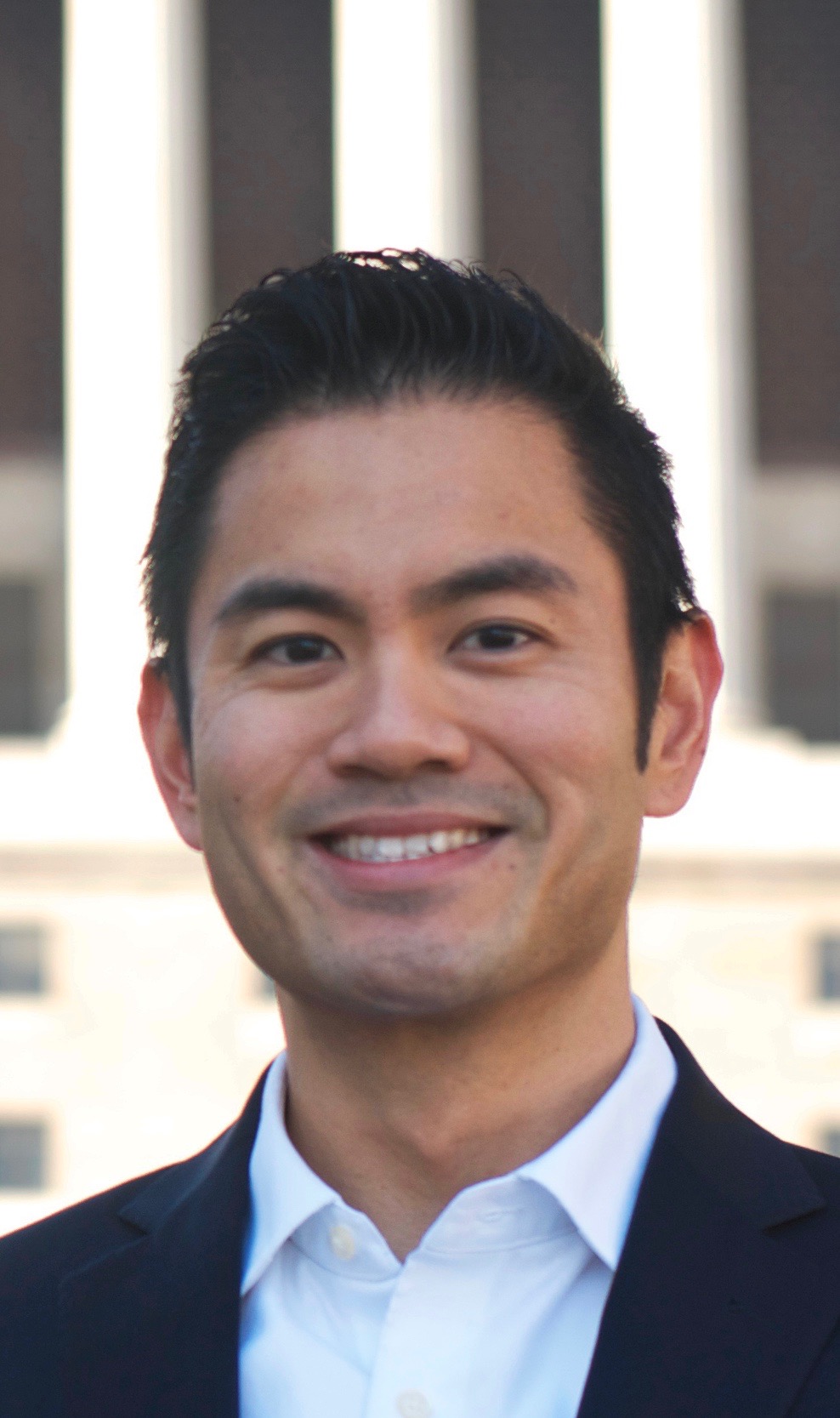
▲只要被留置訊問的人要求律師到場,警方的調查人員就不准再問任何問題。(示意圖/取自免費圖庫pixabay)
(編按:在台灣嫌犯被偵訊時,雖可要求律師在場,但律師只能做安靜的觀察者。即使律師要做陳述也需在檢、警、調的許可下,才能發言。否則,就會被以妨礙偵訊或意圖串供為由,趕出偵訊室。本篇以實例説明英美法系刑事嫌犯的偵訊過程,若以此相比,在保障人權和追求正義方面,台灣恐怕還有漫長的改革路要走...)
 ●林映谷(Edgar Lin)/畢業於美國威斯康辛州大學 麥迪遜分校法律學院,擁有美國法律博士學位。專長刑事審判及移民法規,現任美國威斯康辛州州政府「司法正義改革會」成員。曾任職雷曼兄弟投資銀行,威州公設辯護律師,2014年獲威州傑出律師獎。
●林映谷(Edgar Lin)/畢業於美國威斯康辛州大學 麥迪遜分校法律學院,擁有美國法律博士學位。專長刑事審判及移民法規,現任美國威斯康辛州州政府「司法正義改革會」成員。曾任職雷曼兄弟投資銀行,威州公設辯護律師,2014年獲威州傑出律師獎。
●譯者林忠正/經濟學博士,曾任立委、金管會委員、民進黨副秘書長、中研院研究員、台大教授。
你因為一個罪名剛被逮捕。逮捕你的警官將你上了手銬,又從你的口袋裡找到一捲來自犯罪現埸的鈔票。你的腦子裏一片空白!
小心製作筆錄前與警察的「閒聊」
逮捕你的警官在開車到警察局的路上,都沒有問你任何問題。他帶你到一個沒有窗戶的房間 。天花板上,微弱的日光燈一閃一閃著,角落裝有一個小攝影鏡頭。天氣冷到凍人!
一個比較老的刑警走了進來,他人真的很好。他經常笑著臉,他給你香煙抽。他問你的背景,例如你名字?讀哪裡的學校?他就像在談悄悄話一般,你緊繃的心開始有些放鬆了。
當他才得到你的信任時,他說他目前正在偵辦昨天發生的一件搶劫案。他知道你曾在案發地點,因為監視器拍到車子的牌照了。他已經和汽車的主人─你的爸爸談過了,他説你先前才向他借了車子。刑警說,發生搶案的店員被刀子捅了,剛剛已經死了!但他不認為你是殺人兇手。昨天到底是怎麼一回事?他想聽聽你的説法。他認為在他聽你對這事件的説法之前,他必須對你宣讀你的權利。
律師在場權與緘默權
「這是一個標準的例行公事,沒什麼特別!你有權利保持沈默。任何你說的事情都可能會被拿到法庭,做為不利於你的事證。你有權利請律師到場。如果你沒有錢請律師,會提供一位律師給你。你明白我為你宣讀的權利嗎?明白這些權利後,你還願意告訴我嗎?」
兇殺案?你真的被嚇到了!你實在不知道有人在那商店裏面被刀捅了。你突然覺得口乾舌燥,眼睛的水也變多了。你深深地吸了一口氣,並且提起精神。你問這位親切的刑警,是不是你告訴他事情是怎麼發生的,你就可以離開看守所?他説,誠實可以走長的路。他說,他有像你這種年紀的小孩,他能看出你是個好孩子。他沒辦法承諾你任何事,不過他一定會寫些好聽的文字給檢察官看。
你開始起了疑心。你要求是否可以請律師來?你可以看出他試著藏住他的怒氣。他説他不能告訴你,什麼是你應該做、或不應該做的事。但是你若請了律師來,他就不能聽到你這邊的説法了。這個刑警的親切感似乎是硬裝出來的。
你還是決定要有一位律師,提供諮詢的意見,所以你要求提供一個律師。只要被留置訊問的人要求律師到場,警方的調查人員就不准再問任何問題了。這個刑警不再掩飾他的憤怒,暴風似地離開了偵訊室。
過了不久,一位年輕但是自信的律師出現了。他告訴你,他是一個公設辯護人,公設辯護人就是刑事辯護律師。你問說,是不是要付他錢?他說,因為你沒有任何收入,你有資格得到公設辯護律師,免費得到委任的服務。
他告訴刑警,他需要一間沒監視器和錄音的乾淨房間,你就被帶到另一個房間去了。他告訴你,在這裏即使有任何話被錄了,檢察官也永遠不能拿到法庭上來使用,因為律師和當事人之間對話是受到法律特殊保護的。你的律師也永遠不可以在法庭上,對你做出任何不利的陳述。
律師告訴你,你告訴他的任何事都是保密的,而且他還受律師倫理的規範,一定要保護你的秘密,即使你告訴他,幾年前你殺了某個人。
你告訴律師,昨天真正發生了什麼事。他問了你和你朋友關係的問題,接著又問了這個案情的每一個細節。你也告訴他一切你能記得的東西。你的律師説,他要去聯絡檢察官,因為警察不能進行任何協商。
在偵訊室外,律師告訴刑警說,他需要和檢察官談一下話。刑警説,這案子還沒走到刑事起訴,他才開始偵查而已!接著,律師告訴刑警,在他沒先和檢察官講話之前,他的當事人絕不會做出任何陳述(自白書)。刑警失望地離開,說他會去找檢察官。
當你的律師回到你所在的房間,向你説明你正處於嚴重的麻煩之中。檢察官想要將你釘上「殺人重罪」和「持械搶劫」案子裏的幫助犯和教唆犯。在威斯康辛州「殺人重罪」是指,犯罪過程中,有人死了。任何涉及這種重罪都可能被以「殺人重罪」起訴。「殺人重罪」加上「持械搶劫」,最高可被判處關押在監獄裏55年的刑期。
筆錄翻供的風險
他們會說,你是在「持械搶劫」中把風。監視器拍到你爸的車在那裡,而且「持械搶劫」的收入就在你的口袋裏。或許他們不能證明你在那地方,因為沒有人看到你的臉。另一方面,你的「壞小孩」朋友也許被逮了,不但招了,而且還指認你在現場。而你爸爸說,你才借過那車子。至於錢嗎?也許他們無法證明這些錢就是來自那家店的錢,但是看起來不妙!似乎合理的辯護理由越多,最後反會導致你非要到法庭接受審判的詰問不可,在法庭上説明你完全都不知道這件犯罪行為。
如果陪審團相信你,認為你的話可信,你被起訴的罪條就會得到「無罪」的認定。這一切都會落到「可信度」的問題。
你的律師告訴你,如果檢察官要跟你談話,而且要你合作的話,她可能會大輻度減輕對你的懲罰。最好的狀況是,你完全不會被起訴。最壞的狀況是,你的故事和檢察官及警察握有的證據不同,他們還會因你説謊,而多懲罰你。你的律師再次強調,你必須對他誠實,他才能做出最適當的辯護。你的生命已經懸掛在一條細線上。如果你事先知道,你朋友會去搶劫 ,他不希望你告訴檢察官,除非為了換取你的合作,檢察官願意提出一些減罪的協商、優惠的處遇、或某些種類的免訴處分。檢察官為了交換你的合作,甚至會讓你羈押在看守所的時間大幅縮水。
如果你真的不知道搶劫案,你最後可能會面對一個有審判團的法庭。無論在什麼時候,你的故事都必須一致。不要到了法庭,你的故事就變了。 他們會抓住這個改變,說你是一個不可信的騙子!
你告訴他,你說的所有事情都是真的,而且你是完全無辜的人。律師接到一通電話,就離開了房間 。
在房間外頭,檢察官用電話和律師通話。她是一個出了名嚴格,但是公正的人。律師向檢察官簡述了情況的發展。他邀請她參與偵訊。他告訴檢察官說,他的當事人已經宣示他是完全無辜的人,如果他被起訴的話,當事人願意接受陪審團的審判。 律師向檢察官建議,如果你是可以信任的人,就不要起訴你。檢察官並沒有立即做出承諾,但是表示會考慮所有的提議,包括不起訴這個案子。
律師告訴你,他和檢察官的會談內容。你問他,若是自己去和檢察官談談,是否有利?律師分析了優點,也點出新的風險。聽完你的各種選項,你決定繼續進行偵訊的程序。律師表示,如果他打斷了偵訊的問話,你就必須立刻停止說話。如果你覺得問題讓你覺得不舒服,或者問題不清楚,你就請求暫停偵訊,並且要求和律師講話。這些行為都是偵訊中常有的慣例。
隨後,檢察官和刑警一起走進了房間,刑警再次宣讀了先前己經念過的權利。檢察官告訴你,她要聽你對這事情的說法。你就告訴她你的故事。檢察官還問了一些延伸的問題。然後她問你,知不知道你朋友有偷竊和搶劫的歷史?你心都涼了,因為你沒有告訴你的律師整個故事 。
「據實陳述義務」的重要性
你原先告訴你的律師說,你的朋友是你小時候的朋友,除了知道他被一般人叫做「壞孩子」之外,你並不知道他有犯罪的記錄。事實是,你知道你的朋友兩年前因為搶劫案被捕,你還去看守所探望過他。
當你的律師感覺到你在偵訊中有些猶豫,他打斷了檢察官的問話,並且要求檢察官和刑警離開房間,因為他需要和他的當事人談一下話。他們離開後,他低聲地問你,到底怎麼一回事?你告訴他,你知道你朋友的紀錄。你向他道歉,因為沒有先告訴他,你真的是忘了。
你的律師充滿了挫折感,再次警告你一定要完全誠實。他說,他會告訴他們,你不想回答這個問題,那就繼續走到下個問題。但無論如何,即使你據實回答了這個問題,他也覺得這不是最糟的情形。而你也同意這看法。
他請檢察官和刑警回來房間。他向他們解釋,剛剛有點溝通上的問題,你忘了是因為先前心情很驚慌。不過,你知道你的朋友過去曾有搶劫的麻煩。檢察官對你的誠實道了謝。她說,若有任何新的發展,她會和你的律師談 。
現在檢察官接下來的事,就是要決定是否起訴?。如果要起訴,那些相關文件又要如何撰寫,才會恰當呢?
以下為作者原文:
Interrogation of the criminally accused
You were just arrested for a crime. The arresting officers handcuffed you and found a roll of money from the crime scene in your pocket. Your mind went blank.
The day before your arrest, your friend--a known “bad boy”, told you to pull your car over at the convenience store so he could grab a soda. You were driving your dad’s car. A few minutes later, he ran out with a bag full of cash. “Drive!” He yelled. You panicked and slammed on the gas, driving through a red light and knocking over an unoccupied Harley Davidson. Angry and bewildered, you dropped him off at his home. Your friend then threw a roll of money at you and left. It was your 18th birthday.
The arresting officer did not ask you any questions on your ride to the police station. He brought you to a windowless room. There was a dimly lit fluorescent light flickering on the ceiling and a small camera in the corner. It was freezing cold.
An older detective walked in. He was really nice. He smiled a lot. He gave you a cigarette. He asked you questions about your background like your name, where you went to school, etc. He was making small talk. You began to loosen up a bit.
As he began to gain your trust, he said he was investigating a robbery that happened yesterday. He knew you were at the robbery because a surveillance camera caught the license plate. He already spoke to the owner of the car, your dad, who said you borrowed the car earlier. He said the cashier at the robbery was stabbed and just died. He didn’t think you were the killer. He wanted to hear your version of what happened yesterday. He said that before he could hear your version of events, he must read you your rights.
“It’s just standard protocol, nothing special, okay? You have the right to remain silent. Anything you say can and will be used against you in a court of law. You have the right to an attorney. If you cannot afford an attorney, one will be provided for you. Do you understand the rights I have just read to you? With these rights in mind, do you wish to speak to me?”
Murder!? You were terrified. You had no idea someone was stabbed in the store! Your mouth was dry and your eyes were watery. You took a deep breath and gathered yourself. You asked the nice detective if you could get out of jail if you told him what happened. He said honesty would go a long way. He said he has kids your age, and he could tell you are a good kid. He said he couldn’t promise you anything, but he would definitely put in a good word to the prosecutor.
You grew suspicious. You asked if you should talk to an attorney. You could see he was trying to hide his irritation. He said he could not tell you what you should or should not do, but if you asked for a lawyer, he could no longer hear your side of thestory. The detective’s niceness seemed contrived now. You decided that you would like a lawyer to advise you, so you asked for a lawyer. Once a detainee asks for a lawyer, the detective is not allowed to ask any more questions. The detective didn’t hide his irritation now and stormed out of the room.
Shortly after, a young but confident lawyer showed up. He told you he is a public defender, and public defenders are criminal defense attorneys. You asked if you needed to pay him. He said that because you did not have an income, you qualified for free representation.
He told the detective he needed a clean room with no audio or video recording. You were taken to another room. He told you that even if anything was actually recorded, the prosecutor could never use it in court because attorney-client privilege protects that conversation. Your lawyer can never testify against you in court.
He told you anything you told him was confidential, and he was ethically bound to keep your secrets, even if you told him you killed someone years ago. You told him exactly what happened. He asked questions about your relationship with your friend and followed up on the details of the event. You told him everything you could remember. Your lawyer said he’d reach out to the prosecutor, because police officers could not make deals.
Outside the interrogation room, the lawyer told the detective he needed to speak to the prosecutor. The detective said the case was not criminally charged yet and he was just starting the investigation. The lawyer told the detective his client would not make a statement without him first talking to the prosecutor. Frustrated, the detective said he would reach out to the prosecutor.
Your lawyer came back to your room and explained that you were in serious trouble. The prosecutor could likely pin you with felony murder and armed robbery, aiding and abetting. In Wisconsin, felony murder is when someone dies during a commission of a felony crime. Everyone involved in that felony can be charged with felony murder. The maximum penalty you faced is 55 years in prison. They would say you were a lookout in the armed robbery. Surveillance cameras showed your dad’s car, and you have the proceeds of the armed robbery in your pocket.
Your lawyer quickly discussed some potential defenses. Maybe they could not prove that you were there since nobody saw your face. On the other hand, your friend may get arrested and talk, placing you at the scene. Your dad said you just borrowed the car. The money, well, they probably couldn’t prove that it’s the same money from the store, but it looked bad. The more plausible defense, which would require you to ultimately testify in trial, was to explain that you had no knowledge that the crime was going to be committed. If the jury believed you and found you credible, you would be found Not Guilty on the charges. It would all come down to credibility.
Your lawyer told you that if the prosecutor wanted to talk to you, she might cut you a deal for your cooperation. The best-case scenario: you avoid being chargedcompletely. The worst-case scenario: your story failed to match whatever evidence the prosecutor and detective had and they punish you for lying. Your lawyer stressed again that you must be honest with him so he could properly defend you. Your life was hanging on the line. If you knew that your friend was going to commit the robbery, he may not want you to speak to the prosecutor unless you are offered a deal, a proffer, or some type of immunity for cooperation. In exchange for your cooperation, you would likely get a big reduction in jail time.
If you truly had no knowledge of the robbery, then you may ultimately have a jury trial. Your story must be consistent at all times. Otherwise, if you were to go to trial and your story changed, they would use it against you to show you were lying. You told him that everything you said was true and you are completely innocent. The lawyer received a call and left the room.
Outside the room, the prosecutor called the lawyer to talk. She has a reputation of being tough but fair. The lawyer told the prosecutor a summary of what happened, and offered her to be present at the interrogation. He told the prosecutor that his client was professing full innocence and would be willing to go to a jury trial if the case was charged. He suggested the prosecutor not press charges if she found you credible. The prosecutor made no promises at this point but is open to all options, including not charging the case.
Your lawyer told you about his conversation with the prosecutor. You asked him whether or not it would be good to talk to the prosecutor. He gave you the benefits and risks of opening up. After hearing your options, you decided to go forward with the interrogation. He said that if he interrupted during questioning, you must stop immediately. If you felt uncomfortable with a question or if the question was unclear, you need to pause and ask to speak to him. These are customary during interrogation.
The prosecutor and detective then came in the room. The detective read the same rights he read earlier to you again. The prosecutor told you she wanted to hear your version of events. You told her your story. The prosecutor asked some follow up questions. She then asked if you knew that your friend had a history of theft or robbery. You froze because you realized you did not tell your lawyer the whole story. You told your lawyer that your friend was a childhood friend, and other than generally being known as a “bad boy”, you were not aware that he has a criminal record. The truth was, you knew that your friend was arrested 2 years ago for robbery because you visited him in jail.
Your lawyer sensed your hesitation. He interrupted the questioning and asked the prosecutor and detective to leave because he needed a second to talk to his client. After they left, he quietly asked you what happened. You told him you knew about your friend’s record, and you apologized for not telling him. You just forgot. Frustrated, your lawyer warned you again about being completely honest. He said he could tell them you do not want to answer that question and move on. However, he felt it was not the worst fact even if you answered it. You agreed.
He called the prosecutor and detective back. He explained to them that there was some miscommunication and that you forgot because you were panicking earlier, but you knew that your friend was in trouble before for robbery. The prosecutor thanked you for being honest. She said she would talk to your lawyer about any updates.
Now the prosecutor has to decide whether charges would be filed or not. And if charges were filed, what would be appropriate?
熱門閱讀》
►哈紹吉命案是沙國版的「江南案」
●以上言論不代表本網立場,論壇歡迎更多聲音與討論,來稿請寄editor88@ettoday.net









讀者迴響